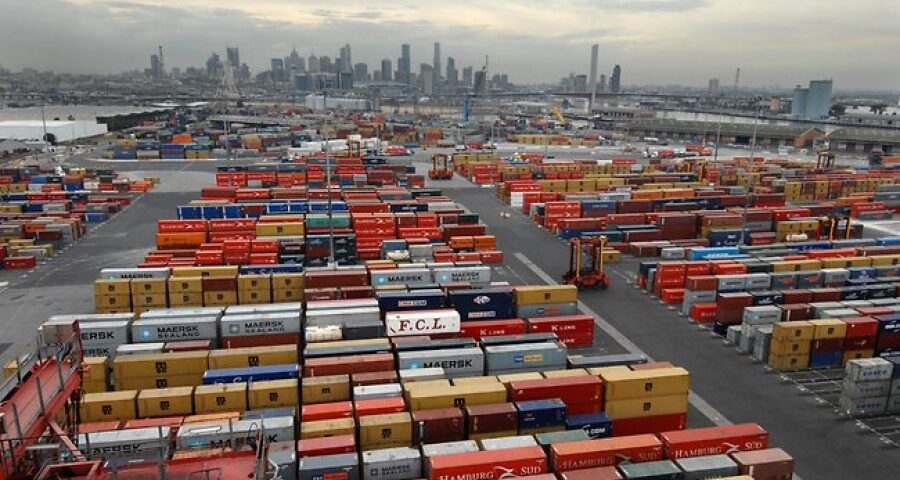With approximately 90% of global trade in volume being carried by sea, seaports are a core strategic resource driving the regional economy within the context of globalization and trade boom. Yet, seaports are not well integrated with mainstream economics and efforts to quantitatively analyze seaports’ activity with the use of basic economic concepts remain very limited. Business cycles are considered a profound economic theory and, stimulate a wide area of research and the formulation of indicators of economic activity. To day, the cyclicality of port activities is to a certain extent theoretically implied but there are no relevant empirical studies. We take a first step towards filling this anticipated gap.
 PortEconomics member Thomas Vitsounis, along with Persa Paflioti (University of the Aegean), Efthimios Roumpis (University of the Aegean), Ioannis Tsamourgelis (University of the Aegean) and Michael Bell (University of Sydney) examine the business cycles in the Australian port industry for an extended period of 19 years. Through non-parametric modeling, authors identify port cycles, their turning points, and their relation to the Australian business cycles. The results underline the differences between export and import ports cycles and highlight the necessity of more detailed analysis on a commodity level. The relation between port cycles and business cycles does not provide any significant signs -contrary to the common belief- of a leading or lagging behavior. This indicates the inappropriateness of GDP as a trustworthy indicator for port throughput modeling and forecasting.
PortEconomics member Thomas Vitsounis, along with Persa Paflioti (University of the Aegean), Efthimios Roumpis (University of the Aegean), Ioannis Tsamourgelis (University of the Aegean) and Michael Bell (University of Sydney) examine the business cycles in the Australian port industry for an extended period of 19 years. Through non-parametric modeling, authors identify port cycles, their turning points, and their relation to the Australian business cycles. The results underline the differences between export and import ports cycles and highlight the necessity of more detailed analysis on a commodity level. The relation between port cycles and business cycles does not provide any significant signs -contrary to the common belief- of a leading or lagging behavior. This indicates the inappropriateness of GDP as a trustworthy indicator for port throughput modeling and forecasting.
The study was presented during International Association of Maritime Economists Annual Conference (IAME2015), held in 24-26 August in Kuala Lumpur, Malaysia.
You may download the study @ PortEconomics.eu.












